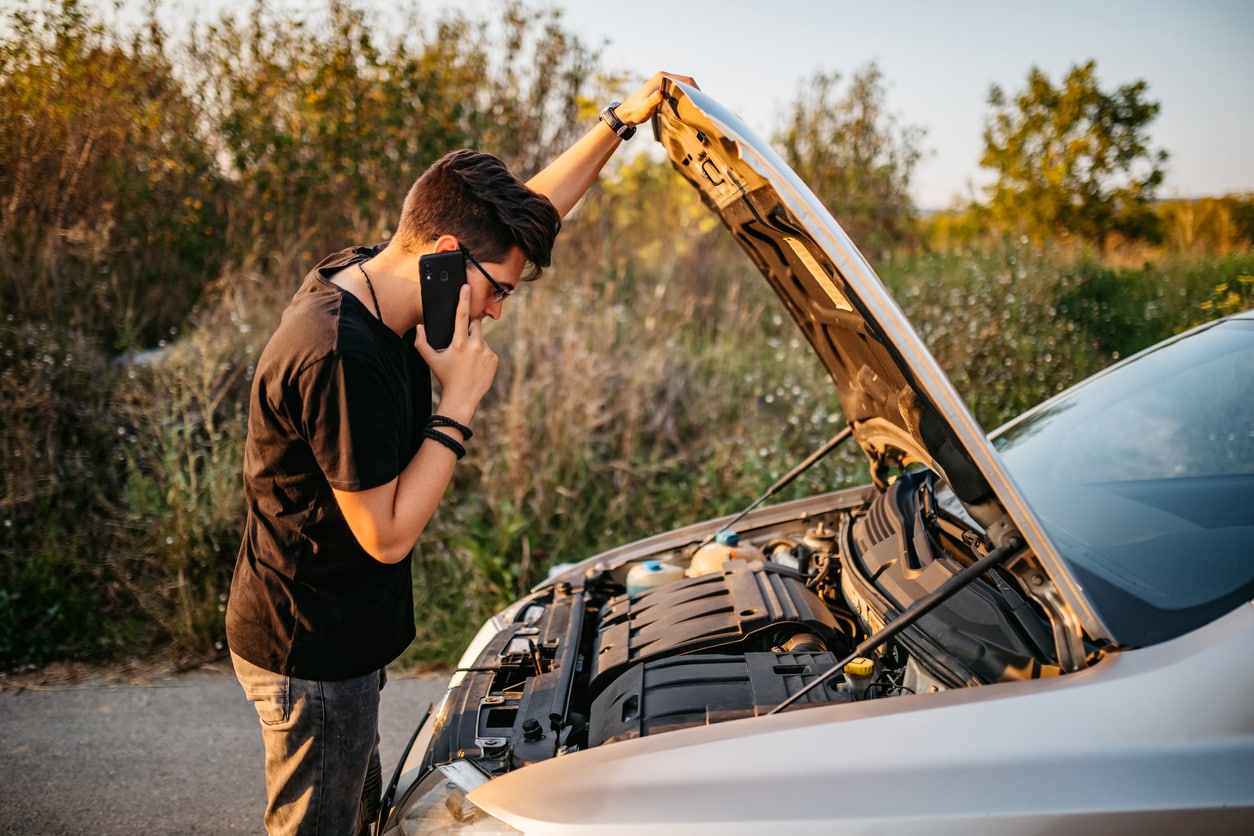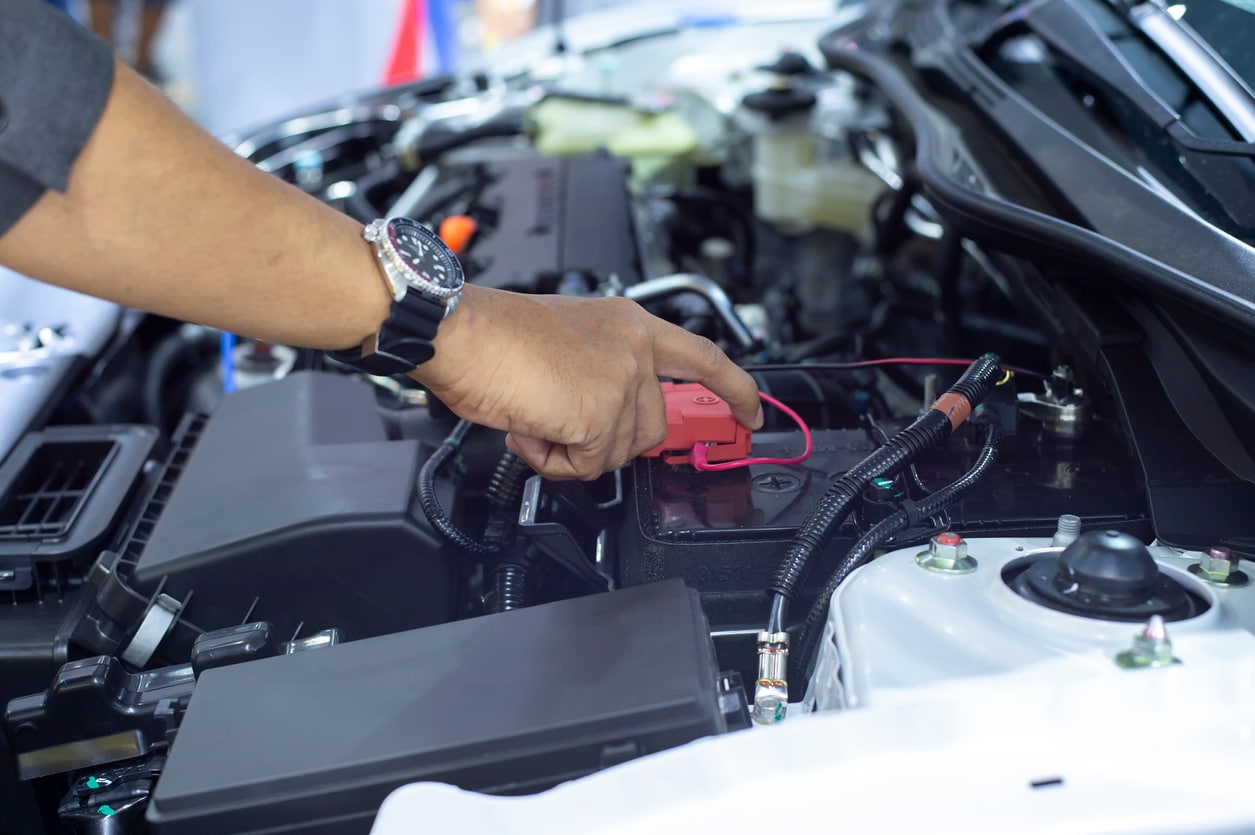Your car’s battery helps to power many electrical functions within your vehicle, including starting your car, illuminating your dash lights, and powering your audio system and accessories. If your car battery dies while driving, you might be left stranded on the side of the road, or worse, in the middle of it.
Don’t let a dead car battery stop you in your tracks! Learn what happens if your battery dies while driving, what to do next, and how to help prevent this issue from occurring in the first place.
Why is the Battery Important?
Understanding your car battery and how it functions is essential. When starting your vehicle, a chemical reaction occurs in the battery, converting chemical energy into electrical energy. This jolt of electricity is sent to the starter motor to crank the engine over. Then, it is eventually sent to other electrical components like your spark plugs, fuel injectors, headlights, alternator, and more.
Like the batteries in your smartphone, a car battery that's running all the time without being recharged may die quickly. The alternator helps to mitigate this issue by generating electricity that recharges the battery while your vehicle is running. However, the battery must be able to maintain the power that the alternator supplies first for these components to work in unison. Their combined function is why you can drive all night with headlights on with no ill effect on the battery.
When these components are working properly, and in unison, they create a supply of electricity that keeps your vehicle going. But if either component becomes damaged or fails, you may begin to experience the symptoms below.
Signs Your Battery Could Die
So, you know that the battery is essential, but what happens when it’s about to die? There are several signs you may notice if the battery and/or the alternator are struggling.
- Trouble starting: When attempting to start your vehicle, it may be slow to start or not start at all
- Flickering headlights: While there are several potential causes for this issue, your headlights rely on battery power to function. If your battery is dying, you may experience flickering or dimming headlights. Conversely, just because the headlights turn on does not necessarily mean that the battery has the ability to start the engine.
- Illuminated battery warning light. These lights don’t always point to a dying battery, but it often indicates an electrical issue, such as the battery not being charged properly.
- Reduced power to internal electrical systems: Your radio, lights, power windows, or sunroof may stop working, dim, or slow down.
- Reduced power to accessories: Your phone or other electrical accessories may not charge when plugged into the car.
Other indicators of a dying car battery can be found in this guide: 5 Unmistakable Signs Your Car Battery is Failing.
What Happens if Your Battery Dies While Driving?
Maybe you’ve noticed signs that your battery is dying but haven't had time to resolve the issue. If your battery fails to charge while driving, but the alternator is functioning properly, the car may continue running while in transit. However, you may not be able to start your vehicle after it's powered off.
But if the alternator isn't functioning properly and the battery dies, your car may eventually lose power and stall or completely shut off. So, can your battery die while the car is running? Absolutely. And oftentimes, this issue is caused by a combination of alternator and battery problems.
If you notice any of the symptoms mentioned above (i.e., illuminated battery warning light, reduced power to accessories, etc.), or if you're wondering what to do if your car battery dies while driving, the solution is simple. Stop by your nearest Tires Plus for car battery checks and service to prevent any potential breakdowns further down the road.
Preventative Care
So, what can you do to keep from being stranded with a dead battery? Make battery and alternator checks a part of your regular car maintenance! You can also check to see if any common battery killers may be at play:
- Age: Batteries don't last forever, and should generally be replaced around every 3-5 years. Check your manufacturer-suggested maintenance schedule to be sure.
- Alternator issue: If the alternator is not pulling its electrical weight, it may fail to charge the battery eventually drain it. Conversely, if your battery is in bad condition for too long, it can cause the alternator to work overtime, potentially causing damage. Be on the lookout for any alternator issues to help prevent a dead car battery while driving.
- Temperature: Extreme temperatures can affect your battery's lifespan and short-term performance. If you live somewhere cold or extremely hot, be sure to have your battery inspected regularly.
- Parasitic battery drain: This can be as simple as a light in the trunk being left on overnight, or a phone charger pulling too much electricity over a long period of time while the vehicle is off. It can also be more complex, such as a wiring issue.
In addition to checking the battery's output, you can visually examine it. Swelling, busting out of the case, and excessive corrosion can indicate a battery is at the end of its life.
Prevent Battery Issues with Help from Tires Plus
Are you losing power, or just want to check on the health of your battery? Stop by your nearest Tires Plus, and our professional technicians will help with whatever you need — from car battery maintenance and testing to replacements and more. Schedule your appointment today!


